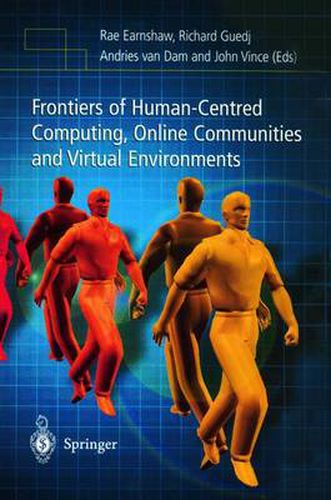Readings Newsletter
Become a Readings Member to make your shopping experience even easier.
Sign in or sign up for free!
You’re not far away from qualifying for FREE standard shipping within Australia
You’ve qualified for FREE standard shipping within Australia
The cart is loading…






This title is printed to order. This book may have been self-published. If so, we cannot guarantee the quality of the content. In the main most books will have gone through the editing process however some may not. We therefore suggest that you be aware of this before ordering this book. If in doubt check either the author or publisher’s details as we are unable to accept any returns unless they are faulty. Please contact us if you have any questions.
Rae Earnshawand John A. Vince –_. . _—– 1 Introduction The USPresident’s Information Technology Advisory Committee (PITAC)recently advised the US Senate of the strategic importance of investing in IT for the 21st century, particularlyin the areas of software,human-computer interaction, scalable information infrastructure, high-end computing and socioeconomic issues [1]. Research frontiers ofhuman-computer interaction include the desire that interac tion be more centered around human needs and capabilities, and that the human environment be considered in virtual environments and in other contextual infor mation-processing activities. The overall goal is to make users more effective in their information or communication tasks by reducing learning times, speeding performance, lowering error rates, facilitating retention and increasing subjective satisfaction. Improved designs can dramatically increase effectiveness for users, who range from novices to experts and who have diverse cultures with varying educational backgrounds. Their lives could be made more satisfying, their work safer, their learning easier and their health better.
$9.00 standard shipping within Australia
FREE standard shipping within Australia for orders over $100.00
Express & International shipping calculated at checkout
This title is printed to order. This book may have been self-published. If so, we cannot guarantee the quality of the content. In the main most books will have gone through the editing process however some may not. We therefore suggest that you be aware of this before ordering this book. If in doubt check either the author or publisher’s details as we are unable to accept any returns unless they are faulty. Please contact us if you have any questions.
Rae Earnshawand John A. Vince –_. . _—– 1 Introduction The USPresident’s Information Technology Advisory Committee (PITAC)recently advised the US Senate of the strategic importance of investing in IT for the 21st century, particularlyin the areas of software,human-computer interaction, scalable information infrastructure, high-end computing and socioeconomic issues [1]. Research frontiers ofhuman-computer interaction include the desire that interac tion be more centered around human needs and capabilities, and that the human environment be considered in virtual environments and in other contextual infor mation-processing activities. The overall goal is to make users more effective in their information or communication tasks by reducing learning times, speeding performance, lowering error rates, facilitating retention and increasing subjective satisfaction. Improved designs can dramatically increase effectiveness for users, who range from novices to experts and who have diverse cultures with varying educational backgrounds. Their lives could be made more satisfying, their work safer, their learning easier and their health better.